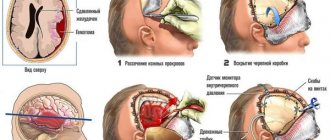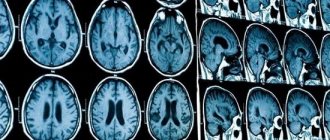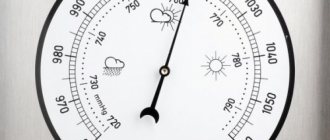Symptoms, not disease
Give it some heat: what weather saves you from coronavirus
Could a stormy summer trigger a surge in cases?
Weather dependence is usually understood as the body's reaction to sudden changes in atmospheric pressure. Despite the prevalence of this concept, it is not considered a disease in itself. Simply, pressure fluctuations intensify the symptoms of existing chronic diseases.
The most common problems faced by weather-sensitive people are headaches, dizziness, rapid heartbeat, loss of energy, mood swings, and joint problems. There may also be an increase in other chronic diseases - for example, if a person suffers from kidney problems, symptoms may become more noticeable at this time
Many doctors explain the body’s sensitivity to weather changes by the fact that in ancient times, a headache served as a kind of signal for people about an upcoming change in the weather - and therefore had a practical meaning.
Let's get promoted
Photo: Depositphotos
Now there is no need for this, so those who suffer in one way or another due to weather-related deterioration in well-being strive to reduce unpleasant symptoms.
What is weather sensitivity and weather dependence?
A person feels comfortable at a certain temperature, humidity and pressure. Changing any of these parameters can cause discomfort: for example, too dry air leads to drying of the mucous membrane of the nasopharynx, resulting in a cough. But the human body adapts well to various environmental changes: this explains why people in general tolerate changing climate zones and sudden changes in pressure that occur when taking off and landing an airplane or diving to depth.
The better developed the adaptive mechanisms of the body, the less a person pays attention to changes in temperature or pressure. Due to age-related changes, adaptation occurs worse; the situation is aggravated if there is a history of chronic diseases. A person does not become weather dependent, but his body adapts less well to changing weather.
Why do many patients believe that their well-being depends on weather changes? There are several reasons:
- self-hypnosis: the patient is sure that weather disasters affect his health, an additional stress factor arises, which “triggers” the exacerbation of a chronic disease;
- the tendency of people to connect different events: a person remembers attacks of illness longer if they occurred simultaneously with weather changes. Such episodes are stored in memory, and gradually a feeling of a relationship between the disease and the weather arises.
But doctors do not deny that a sharp increase or decrease in temperature can be dangerous in itself. For example, summer heat often leads to sunstroke and heatstroke, and winter cold coupled with physical activity increases the risk of heart attack. But weather change in itself does not affect either the physical or mental health of people.
Who is at risk?
According to previously published estimates of the Ministry of Health, people with psycho-emotional disorders (82-84%), people suffering from cardiovascular diseases (80-82%), diseases of the musculoskeletal system (72-74%) and broncho-vascular diseases are especially sensitive to weather changes. pulmonary diseases - among them, 60-64% of patients react to weather changes.
Doctors most often pay attention to the significance of meteorological factors for people with cardiovascular diseases.
“People who have chronic diseases or simply a weak cardiovascular system experience discomfort. Very often they may experience surges in blood pressure,” says Vera Pavlova, a methodologist at the State Budgetary Healthcare Institution of the Republic of Kazakhstan “Center for Medical Prevention”.
Let's get promoted
Photo: TASS/Artem Geodakyan
For those who have already had a heart attack or stroke, weather changes can be especially dangerous, she said.
At the same time, risk groups may change depending on what exactly is happening in the atmosphere. Thus, hypertensive people - people with high blood pressure - react more sharply to cold weather. At this time, the blood vessels in the body narrow, and the heart works more actively in order to generate enough heat. As a result, the load on the cardiac system increases sharply.
For hypotensive people - people with low blood pressure - the most unpleasant time may be before the approach of a cyclone, when the pressure in the atmosphere drops and the weather becomes windier and humid. Hypotonic patients may experience headaches, dizziness, increased fatigue and nausea.
Let's get promoted
Photo: IZVESTIA/Alexander Kazakov
Rain of predictions: which weather signs are fiction and which are true
A cricket will tell you the air temperature, and the setting sun will tell you the weather for tomorrow
Those whose weather changes primarily affect their emotional state may experience depression, absent-mindedness, mood swings, irritability (even aggression) or increased depressive states.
How weather affects a person's blood pressure
Weather changes are perceived by most people as a natural phenomenon. Yes, your mood may spoil on a cloudy day, nothing more. But there is a category of people who, when the atmospheric pressure changes, feel a significant deterioration in their overall health: headaches, dizziness, loss of strength, aching joints. These and other symptoms significantly complicate the life of a person suffering from weather dependence. But knowing how atmospheric pressure affects the pressure in the blood vessels, you can understand what measures to take to prevent health problems. Polina Zhelezova , chief physician of the OGBUZ Center for Public Health and Medical Prevention, chief freelance specialist in medical prevention of the Department of Health of the Kostroma Region, talks about this
.
Atmospheric pressure and blood pressure, that is, the pressure in the vessels of our body, are closely related. Arteries and veins quickly respond to changes in the atmosphere, expanding or narrowing. Thus, a healthy person does not feel discomfort. If a person has a history of problems with the cardiovascular, endocrine, nervous system, or the body is simply weakened due to vitamin deficiency, excessive physical or emotional stress, then his blood vessels simply cannot keep up with changes in nature and attacks of hypertension or hypotension occur.
High atmospheric pressure
Changes in atmospheric pressure are directly affected by air temperature, humidity parameters, wind speed and even seasons. So, when we observe a frosty, clear day, without precipitation, this indicates high atmospheric pressure, that is, an anticyclone. What happens in the human body, namely with its blood pressure? It, following the established connection, also increases. At the same time, the condition of hypertensive patients especially worsens; “due to the weather,” their blood pressure rises even higher. The most common unpleasant symptom of this condition is headache of varying intensity and character. But other signs may also occur: tinnitus, hearing impairment, darkening of the eyes, dry mucous membranes, strong heartbeat, rhythm disturbances, pain in the heart area, increased breathing, shortness of breath. If the pressure jump was sharp, then in the absence of proper help, an acute attack of hypertension, known as a hypertensive crisis, is possible. And this is the first step to strokes and heart attacks.
Low atmospheric pressure
With high air humidity, cloudiness, high temperature and low atmospheric pressure, a cyclone appears. Most often this happens in autumn and spring. At this time, hypotension suffers the most - people whose blood pressure may not reach 100/60 mmHg. Art. At the same time, due to the dilation of blood vessels, blood circulates more slowly throughout the body. This leads to oxygen starvation of tissues and organs. During a cyclone, the pressure drops even lower, which causes the following symptoms: dizziness, apathy, decreased performance, severe headaches, weak pulse, possible digestive system disorders, difficulty breathing. What happens to the blood pressure of hypertensive patients during a cyclone? They also suffer from sudden weather changes. Most people with hypertension take medications to control their symptoms. First of all, medications to lower blood pressure. During a cyclone, its indicators drop even lower, which worsens a person’s general well-being. He feels a loss of strength, decreased attention, pressing pain in the head and blurred vision.
Recommendations for hypotensive and hypertensive patients
Depending on what condition you are suffering from, hypotension or hypertension, the list of doctor's recommendations is very different. If the patient complains of symptoms characteristic of low blood pressure
, then when the weather changes, you need to spend more time in the fresh air, engage in active sports (jogging, cycling, swimming), drink plenty of fluids, drink caffeinated drinks (strong tea, coffee), for an emergency increase in blood pressure, take tinctures of lemongrass, ginseng, and eleutherococcus .
For people prone to hypertension, doctors strongly recommend
adhere to the following rules: avoid physical and emotional fatigue, avoid walking in the sun, constantly ventilate the room, adhere to proper nutrition, excluding salty, spicy, spicy and fatty foods, do not drink coffee and other drinks containing caffeine, take medications prescribed by your doctor on time .
In any case, you should establish a daily routine, get more rest, avoid stress and eat right. And in order to help your body in a timely manner, it is important to control your blood pressure using devices.
Monitor the temperature and humidity
In addition to atmospheric pressure, other weather parameters also affect the body, namely air temperature and humidity.
If, at high atmospheric pressure, there is a sharp and significant decrease in temperature and an increase in air humidity, a state of hypothermia may develop, in other words, hypothermia. In this case, vasospasm occurs, which provokes a decrease in heat transfer. With persistent spasm, pressure increases significantly, this can lead to a hypertensive crisis.
As humidity increases, the amount of oxygen in the air decreases. The body reacts painfully to oxygen starvation, dizziness, weakness, numbness of the limbs occur, and panic attacks are possible. If the pressure on the weather fluctuates, you feel unwell, emotional and physical disorders, this condition is called meteopathy. Various factors influence susceptibility to this condition: genetic predisposition, age, personality traits, and the presence of chronic health problems. Manifestations of this syndrome can knock a person out of the usual rhythm of life for several days. At the same time, in addition to physical ailments (dizziness, changes in blood pressure, changes in body temperature, weakness, numbness of the limbs, allergy attacks, etc.), a whole range of psychological reactions is observed: apathy, depression, tearfulness, irritability, increased anxiety, panic attacks.
If you are prone to this condition, you need to adhere to a healthy lifestyle, reduce emotional and physical stress, and monitor weather forecasts in order to be prepared for weather changes.
What to do?
The first and main condition for reducing the manifestations of meteosensitivity is a healthy lifestyle as a preventive measure, notes most experts.
Controlling your diet (the less fatty foods, the better for the vascular system), walking in the fresh air and playing sports can improve your health and make your body more resilient, which, among other things, will reduce the negative effects of magnetic storms.
As a rule, meteorologists warn in advance about serious changes in atmospheric pressure. Those who usually overreact to such changes a few days in advance should prepare in advance. This includes establishing a daily routine and exercising; active physical activity during weather changes is not recommended.
Let's get promoted
Photo: Depositphotos
Natural changes: scientists advise Russians not to wait for “normal” weather
Moscow will continue to be covered by prolonged downpours
“Specifically during bad weather, you need to follow a drinking regime to thin the blood. You should also pay attention to nutrition and try to put off any diets and restrictions during bad weather conditions, maintaining the balance of KBZHU,” noted Vera Pavlova.
If possible, doctors ask people suffering from high or low blood pressure to stay at home and lie down more on such days. Hypertensive patients should avoid caffeine-containing drinks and switch to herbal teas. Hypotonic people, on the contrary, can afford coffee and dark chocolate.
It is recommended to reduce salt intake and give preference to foods containing iron, potassium, calcium and ascorbic acid.
Why do I get headaches when the weather changes?
Weather sensitivity is not an official diagnosis or disease: a healthy body normally tolerates any weather changes. If you notice that in cloudy weather you suffer from dizziness and headaches, this is an alarming signal indicating that pathological processes are occurring in your body. It is recommended to make an appointment with a neurologist or cardiologist.
Typically, headaches when the weather changes occur due to impaired vascular tone. Inside the skull, its own pressure is established (intracranial), the maintenance of which is important for the normal nutrition of brain cells. If vascular tone is disturbed (as, for example, with cervical osteochondrosis), a change in ambient temperature can provoke severe pain.
The mechanism of its development is as follows: temperature or pressure changes, in order to adapt to these changes, the vessels in the human body narrow or expand. But if their tone is disturbed, there are plaques on the walls or other pathologies are observed, this leads to circulatory disorders and changes in intracranial pressure. As a result, the patient may experience different types of headaches: from a “cotton-like sensation” to throbbing in the temples or migraine.
Pain can also be caused by an electrolyte imbalance. For example, if the air becomes humid, fluid accumulates in the body, which leads to an imbalance and can cause headaches. What to do in such cases?
To stop depending on weather changes, it is necessary to cure the disease: cope with osteochondrosis, restore vascular tone. To do this, you first need to understand why the body reacts sharply to temperature fluctuations. You can do this by making an appointment with a cardiologist or therapist at a medical center.
What heart problems can arise due to weather changes?
Changes in weather cannot disrupt the functioning of a healthy heart, but can cause an exacerbation of chronic cardiovascular diseases. Doctors identify two main types of weather that are dangerous for heart patients:
- spastic: characterized by an increase in air pressure with a simultaneous decrease in temperature. This can lead to exacerbations of hypertension, angina, and coronary heart disease. Many patients complain of severe headaches due to vascular spasms;
- hypoxic: characterized by a decrease in pressure at high temperatures. Such weather is easier for patients with chronic heart disease, and there is less risk of stroke, heart attack or hypertensive crisis. But at the same time, shortness of breath and dizziness may develop, since the concentration of oxygen in the air decreases, and mild symptoms of hypoxia occur. Even healthy people may feel more lethargic and sleepy.











